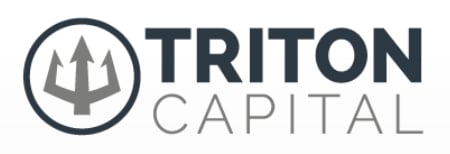How to Finance a Business Purchase
Business acquisition loans can help finance the purchase of an existing business, but they aren’t the only solution.
Many, or all, of the products featured on this page are from our advertising partners who compensate us when you take certain actions on our website or click to take an action on their website. However, this does not influence our evaluations. Our opinions are our own. Here is a list of our partners and here's how we make money.
Not all new business owners start from scratch — some choose to buy an existing small business instead. You can finance a business purchase with a small-business loan, known as a business acquisition loan, from traditional banks and online lenders. If the business is already profitable, qualifying for financing may be easier than funding a startup without operating history.
You can also use the business’s assets to secure a loan (a leveraged buyout) or take on some of its debt to reduce the purchase price (debt assumption). If you want to bypass traditional bank financing altogether, consider a seller financing agreement, in which you work out an arrangement with the current business owner to pay them in installments.
How much do you need?
We'll start with a brief questionnaire to better understand the unique
needs of your business.
Once we uncover your personalized matches, our team will consult you
on the process moving forward.
Find the right loan for your business
Tell us how much you need and see your options in minutes.Ways to finance a business acquisition
If you’re not relying solely on personal funds to buy a business, several financing options are available, especially if you have good credit and a history of business ownership.
SBA loans
Borrowers with good credit and sufficient collateral may qualify for SBA loans, which are partially guaranteed by the Small Business Administration and can cover up to 90% of a business's purchase price. These loans have strict eligibility requirements, and the application and funding process can take up to three months. Borrowers must also contribute a 10% equity injection (down payment).
Most SBA 7(a) loans, the most popular type of SBA funding, are distributed as term loans, and borrowers have up to 25 years to pay them back.
Bank loans
Like SBA loans, traditional bank loans come with a rigorous application process and usually require collateral. Maximum bank term loan amounts typically range from $100,000 to $3 million, and repayment terms often vary from one to seven years. The larger the loan, the more likely it’ll require a personal guarantee or lien.
Additionally, banks tend to offer higher maximum loan amounts for secured loans versus unsecured loans.
How Fundera by NerdWallet Works
Getting a business loan can be challenging. Let our sales experts help you through the process.

Fill out a simple application Our 3-min. questionnaire is free & won't impact credit.

See your loan options Compare rates and repayment terms to choose the best product for your needs.

Get your loan If approved, sign closing documents and receive funds.
Online business loans
Online lenders typically offer loans with more flexible requirements and faster approval times than SBA or other traditional bank loans. The trade-off is often higher interest rates and shorter repayment terms.
Many online business loans are structured as term loans or lines of credit. Depending on the lender and loan amount, repayment periods can range from three months to seven years.
Interested in a business acquisition loan?
Learn more about these loans you can use to finance a business purchase plus compare our recommendations for the best loan options.
» MORE: Business acquisition loans
Leveraged buyout
Leveraged buyouts can be a good option for borrowers who lack sufficient cash for a down payment but still need a sizable loan. Instead of upfront capital, the borrower uses the acquired business’s assets or future cash flow as leverage.
For this approach to work, the business must have valuable assets, and the lender must be confident in its ability to generate consistent revenue. This type of financing is best suited for well-established businesses with stable, predictable cash flow.
Seller financing
Instead of working with a bank (or in conjunction with it), entrepreneurs can approach a business’s owner and ask for seller financing. In a typical arrangement, the seller finances 5% to 25% of the purchase price, and the borrower agrees to repay that amount over time.
This type of financing is more flexible than a traditional loan, and repayment terms may be tied to the future performance of the business.
Debt assumption
In this situation, the buyer takes on the business’s existing debt, which is typically deducted from the purchase price. However, the lender must approve the transfer of debt, and this arrangement can add complexity to the transaction.
The best loans to finance a business purchase
Advantages of buying an existing business
- A proven business model and existing customer base indicate clear demand for the company’s products or services. Having an established target audience and marketing plan can also make future advertising efforts easier and more effective.
- You don’t have to hire all of your employees. Not only is hiring time-consuming, but it can also cost a lot of money to run background checks, recruit the right people and train them on company processes.
- Systems are already in place. Trial and error is a major part of launching a business, but buying an established one allows you to bypass much of that learning curve. You’ll inherit operational tools that are already working — such as a point-of-sale system, accounting software, and customer management platforms.
Disadvantages of buying an existing business
- Past financial problems may complicate the loan application process, even if they happened under a different owner.
- You’ll inherit existing issues, big and small. It'll be up to you to solve any hiccups with employees, operations and software and possibly even make up for past financial decisions that didn’t serve the business.

Article sources
NerdWallet writers are subject matter authorities who use primary,
trustworthy sources to inform their work, including peer-reviewed
studies, government websites, academic research and interviews with
industry experts. All content is fact-checked for accuracy, timeliness
and relevance. You can learn more about NerdWallet's high
standards for journalism by reading our
editorial guidelines.
Related articles












